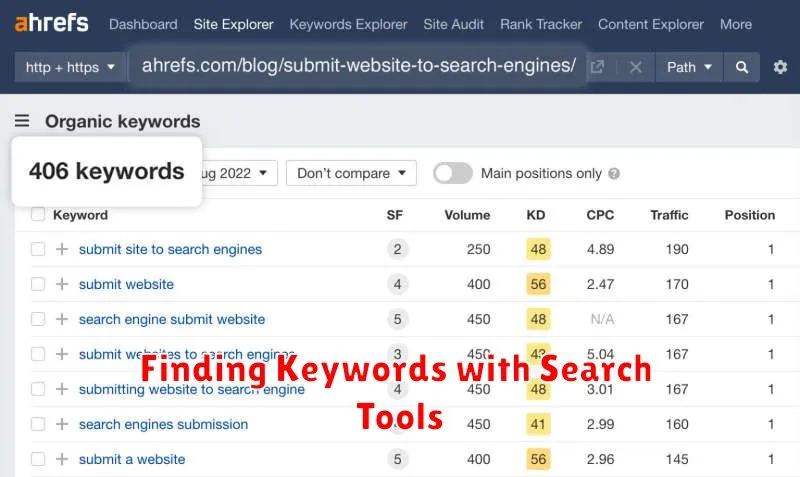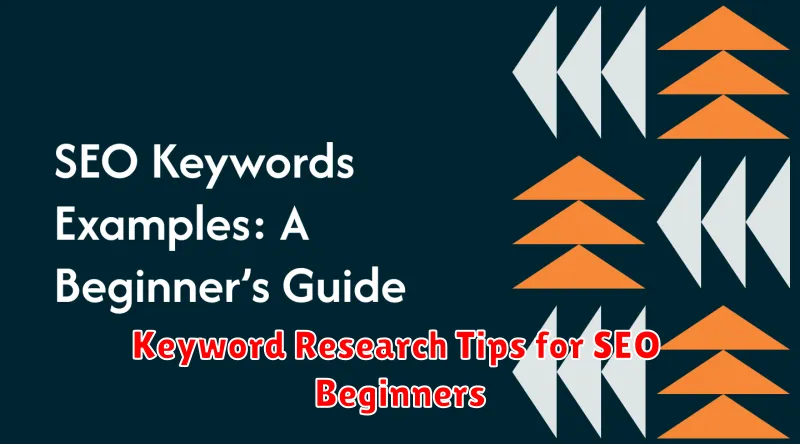Learning how to do keyword research is one of the most fundamental and valuable skills you can acquire as an SEO beginner. Effective keyword research forms the backbone of any successful SEO strategy. It allows you to understand what terms your target audience is using to search for information, products, or services related to your website. By identifying the right keywords, you can optimize your content to rank higher in search engine results pages (SERPs), driving more organic traffic and ultimately achieving your business objectives. Without sound keyword research, your SEO efforts may be misdirected, resulting in wasted time and resources. This guide will provide you with essential keyword research tips to help you get started on your journey to SEO success.
In this comprehensive guide to keyword research for SEO beginners, we will delve into proven techniques and strategies to help you uncover valuable keywords. We’ll cover everything from understanding keyword intent and analyzing search volume to using keyword research tools and identifying long-tail keywords. By the end of this article, you will have the knowledge and confidence to conduct effective keyword research, improve your website’s visibility, and attract more targeted traffic. Master the art of keyword research and unlock the potential of organic search for your website.
What Is Keyword Research?
Keyword research is the process of discovering and analyzing the terms people use in search engines when looking for information, products, or services. It’s a critical component of search engine optimization (SEO).
By understanding what users are searching for, you can tailor your website’s content to better meet their needs. This increases the likelihood of your website appearing in search results when those keywords are used.
Effective keyword research involves identifying relevant keywords, analyzing their search volume (how often they’re searched), and assessing the competition (how many other websites are targeting those same keywords).
The goal is to find keywords that have a high search volume and low competition, presenting a good opportunity for your website to rank well in search results.
Finding Keywords with Search Tools

Utilizing keyword research tools is essential for effective SEO. These tools provide valuable data and insights that help identify relevant keywords for your content.
There are a variety of keyword research tools available, both free and paid. Free tools like Google Keyword Planner offer basic functionality, while premium tools like Ahrefs and SEMrush provide more advanced features, such as competitor analysis and SERP tracking. Choosing the right tool depends on your specific needs and budget.
When using these tools, focus on identifying keywords with a balance of search volume and competition. High search volume indicates significant user interest, while lower competition suggests greater opportunities for ranking. Also, consider long-tail keywords, which are longer, more specific phrases that often have lower competition.
Understanding Search Intent
Before diving into keyword research, it’s crucial to understand search intent. Search intent refers to the reason why a user performs a search. Accurately identifying search intent helps you create content that satisfies user needs and ranks well in search engine results.
There are four primary types of search intent:
- Informational: The user is seeking information. Example: “what is SEO?”
- Navigational: The user wants to find a specific website or page. Example: “facebook login”
- Transactional: The user wants to buy something. Example: “buy iphone 14”
- Commercial Investigation: The user is researching products or services before making a purchase. Example: “best SEO tools”
By understanding the user’s intent, you can choose relevant keywords and create content that effectively addresses their needs. This leads to higher click-through rates, improved rankings, and ultimately, more traffic to your website.
Long-Tail vs Short-Tail Terms
Understanding the difference between long-tail and short-tail keywords is crucial for effective keyword research. Short-tail keywords are generally shorter, more generic phrases. Think of terms like “shoes” or “coffee.” These keywords have high search volume, but also high competition, making it difficult for new websites to rank.
Long-tail keywords, on the other hand, are longer, more specific phrases. Examples include “best running shoes for flat feet” or “organic dark roast coffee beans.” While these keywords have lower individual search volume, they often have less competition and higher conversion rates. People searching with long-tail keywords often have a clearer idea of what they want, making them more likely to purchase.
Choosing the right balance of short-tail and long-tail keywords is key. While aiming for some competitive short-tail keywords is important for overall visibility, focusing on relevant long-tail keywords can drive more targeted traffic to your site.
Competitive Analysis

Understanding your competition is crucial for effective keyword research. Analyzing competitor websites provides valuable insights into the keywords they are targeting and ranking for.
Start by identifying your main competitors. These are websites that offer similar products or services and target the same audience. Once identified, analyze their website content, focusing on page titles, headings, meta descriptions, and overall keyword usage.
Various SEO tools can assist in this process, providing data on competitor keywords, search rankings, and traffic sources. This information helps you identify keyword gaps and opportunities — keywords your competitors are ranking for that you haven’t yet targeted.
Pay attention to the type of content your competitors are creating. Are they focusing on blog posts, videos, infographics, or other formats? Understanding their content strategy can help you develop a more effective approach.
Organizing Keyword Lists
After brainstorming and researching keywords, organizing them is crucial for an effective SEO strategy. A well-structured keyword list helps streamline content creation and targeting efforts.
One effective method is grouping keywords by topic or theme. This allows you to create content clusters focused on specific subjects, improving topical relevance and user experience.
Search intent should also guide your organization. Categorize keywords based on whether the user’s intent is informational, transactional, or navigational. This helps tailor content to meet user needs effectively.
Consider using a spreadsheet or keyword organization tool to manage your lists. These tools enable you to sort, filter, and analyze keywords based on various metrics such as search volume, competition, and relevance.

